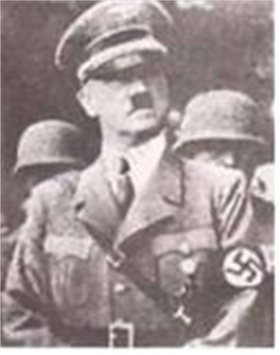 Short Answer Type
Short Answer Type Long Answer Type
Long Answer TypeThe early Congressmen were liberal in their views and programmes. This led to the rise of
radical nationalists who demanded more forceful action against the British. In this context,
discuss the following:
(a) Reasons why the early Congressmen were called ‘Moderates’.
(b) How did the Moderates differ from the Assertive Nationalists in realising their objectives?
(c) How did Tilak bring a new wave in Indian politics that was distinct from the early Congressmen?
The reasons for the formation of the Muslim League were many. In this context, explain:
(a) Any three factors that led to the formation of the League in India.
(b) Any three demands made by the Muslim Deputation in 1906 to the Viceroy Lord Minto.
(c) The aims and objectives of the Muslim League.
(a) The following are three important factors that led to the formation of the Muslim
League in India.
i. British Policy of Divide and Rule – Deliberate attempts were made through the State propaganda machinery to sow the seeds of disunity and communal hatred among the two major religious communities – the Hindus and the Muslims. Realising that it was the resentment amongst the Muslims, formerly the chief ruling class in India that caused the 1857 rebellion to spread like wild fire, the Muslims
were singled out for persecution.
ii. Religious/Revivalist Orientation of Congress Leaders – The radical Congress leaders like Tilak and Lala Lajpat Rai did not shy away from using religious terminology and symbols in their political discourse. Though this was not done with a communal agenda, it ultimately did alienate the Muslims from Congress politics.
iii. The Hindi-Urdu Controversy – For the longest time, Urdu had been the court language in Uttar Pradesh, then the United Provinces. All petitions to the court had to be written in Urdu. This caused a lot of resentment among the Hindus since the language chiefly spoken by them was Hindi or Hindustani of the devanagri script.
b) The following are the three important demands made by the Muslim deputation to the Viceroy Lord Minto:
i. There should be representation of Muslims in elected bodies on the basis of their political eminence and not on the basis of their numerical strength.
ii. There should be separate electoral constituencies for the Muslims in the provincial council and the imperial legislative council.
iii. Preference should be given to members of the Muslim community while nominating members to the Viceroy’s Council.
(c) Aims and Objectives of the Muslim League:
i. Promoting feelings of loyalty among the Indian Muslims towards the British government.
ii. Removing misconceptions that may arise as to the intentions of the British government in relation to the Indian Muslims.
iii. Protecting and promoting the political and other rights of the Muslims and placing their needs and aspirations in front of the government in a mild and moderate language.
iv. Preventing feelings of hostility between the Muslims and other communities, without compromising the aforesaid objectives of the League.
The Congress Working Committee passed the famous ‘Quit India Resolution’ at Wardha in July 1942. With reference to this, answer the following questions:
(a) What were the reasons behind the passing of this resolution?
(b) What was the British government’s reaction to the Quit India Movement?
(c) What was the impact and significance of this movement?

Study the picture given below and answer the questions that follow:
(a) Identify the leader in the picture.
(b) State any four factors that led to the rise of dictatorships in Germany and Italy.
(c) Why did he invade Poland? State two similarities between Fascism and Nazism.
The United Nations Organisation was established to maintain peace and ‘promote social progress and better standards of life in larger freedom.’ With reference to this, explain the following:
(a) The composition of the Security Council.
(b) The functions of the Security Council with related to maintaining World Peace.
(c) The role of UNESCO in the development of Science and Technology.
